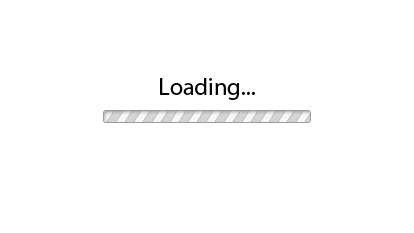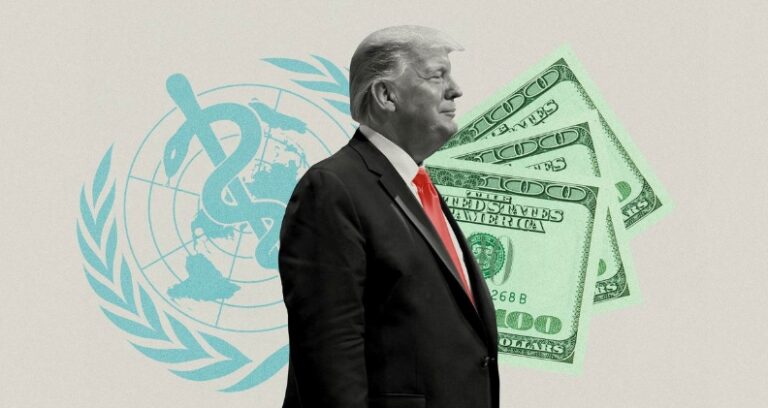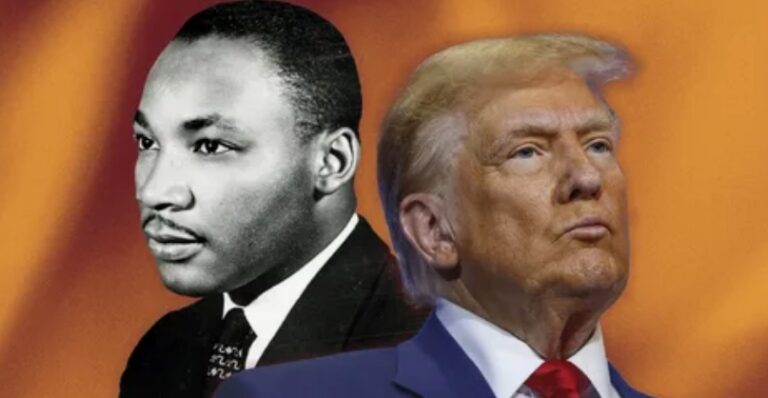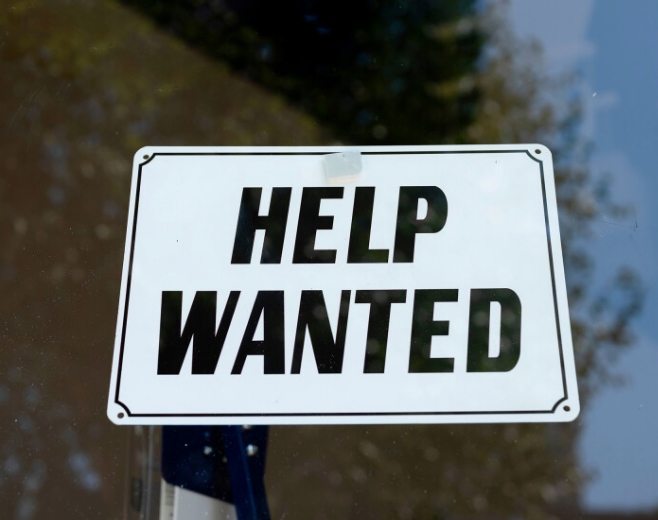
The black unemployment rate is growing. Why that may hurt the economy – Despite analysts’ optimistic assessments of the US labor market as of late, there are concerns that cracks are beginning to appear, particularly in the Black workforce. According to the most recent jobs data from the Labor Department, the jobless rate for Black Americans hit 7.2% in July, which is an increase from 6.3% a year earlier and 6.8% the month before. With this latest jump, the indicator is now significantly higher than the overall unemployment rate of 4.2%, following an astounding 13% leap from May to June.
The unemployment rate has jumped significantly from 5.5% to 6.3% in the last year, with a disproportionate impact on Black women. The left-leaning Economic Policy Institute reports that Black unemployment rates are extremely high in several states, including Michigan, where they are approaching 10%.
Since Black people are typically the first to feel the effects of economic downturns, experts worry that this year’s spike in Black unemployment rates may be a warning signal for the economy as a whole. Unemployment rates among White workers increased by 0.1 percentage points in July, among Asian workers by 0.4 percentage points, and among Hispanic or Latino workers by 0.2 percentage points; these other ethnic groups may already be experiencing the consequences of a weaker labor market. The most current jobs report also revealed a 258,000 reduction in payroll gains for May and June, casting doubt on the strength of the labor market.
In every recession, the Black unemployment rate rises at the forefront. “That’s always the one that gets caught in the middle,” remarked Gbenga Ajilore, chief economist of the independent Center for Budget and Policy Priorities. For what reasons are Black workers seeing a rise in their unemployment rates?
Due to their disproportionate representation in the workforce, economists told USA TODAY that Black employees may be bearing the brunt of the federal government’s recent layoffs.
As of September, Black Americans make up 18% of the federal employment, which is lower than the broader workforce of 12% (as reported in May by the National Women’s Law Center). According to September figures from the U.S. Office of Personnel Management, Black employees make up an even larger share at several agencies that have experienced severe job cuts, such as the Department of Education (36%), U.S. Agency for International Development (21%), and the Health and Human Services Department (20.5%).
More and more Black Americans are losing their jobs. Reasons why that could spell economic disaster.
The fact that Black Americans are disproportionately affected by economic downturns suggests that this trend may be a worrying indicator for the economy as a whole.
Bailey Schulz as portrayed in artToday in USA, Bailey Schulz
Despite analysts’ optimistic assessments of the US labor market as of late, there are concerns that cracks are beginning to appear, particularly in the Black workforce.
According to the most recent jobs data from the Labor Department, the jobless rate for Black Americans hit 7.2% in July, which is an increase from 6.3% a year earlier and 6.8% the month before. With this latest jump, the indicator is now significantly higher than the overall unemployment rate of 4.2%, following an astounding 13% leap from May to June.
The unemployment rate has jumped significantly from 5.5% to 6.3% in the last year, with a disproportionate impact on Black women. The left-leaning Economic Policy Institute reports that Black unemployment rates are extremely high in several states, including Michigan, where they are approaching 10%.
Since Black people are typically the first to feel the effects of economic downturns, experts worry that this year’s spike in Black unemployment rates may be a warning signal for the economy as a whole. Unemployment rates among White workers increased by 0.1 percentage points in July, among Asian workers by 0.4 percentage points, and among Hispanic or Latino workers by 0.2 percentage points; these other ethnic groups may already be experiencing the consequences of a weaker labor market. The most current jobs report also revealed a 258,000 reduction in payroll gains for May and June, casting doubt on the strength of the labor market. ubv
In every recession, the Black unemployment rate rises at the forefront. “That’s always the one that gets caught in the middle,” remarked Gbenga Ajilore, chief economist of the independent Center for Budget and Policy Priorities.
Take a vacation! Try your hand at the crossword puzzle today on USA TODAY.
In Solana Beach, California, on July 17, 2017, a taco stand displayed a help wanted sign.
For what reasons are Black workers seeing a rise in their unemployment rates?
Due to their disproportionate representation in the workforce, economists told USA TODAY that Black employees may be bearing the brunt of the federal government’s recent layoffs.
As of September, Black Americans make up 18% of the federal employment, which is lower than the broader workforce of 12% (as reported in May by the National Women’s Law Center). According to September figures from the U.S. Office of Personnel Management, Black employees make up an even larger share at several agencies that have experienced severe job cuts, such as the Department of Education (36%), U.S. Agency for International Development (21%), and the Health and Human Services Department (20.5%).
Black women comprised around 12% of the federal workforce in 2021, which is nearly double their civilian labor force participation rate, according to data from the U.S. Equal Employment Opportunity Commission. This disparity is even more pronounced for this demographic.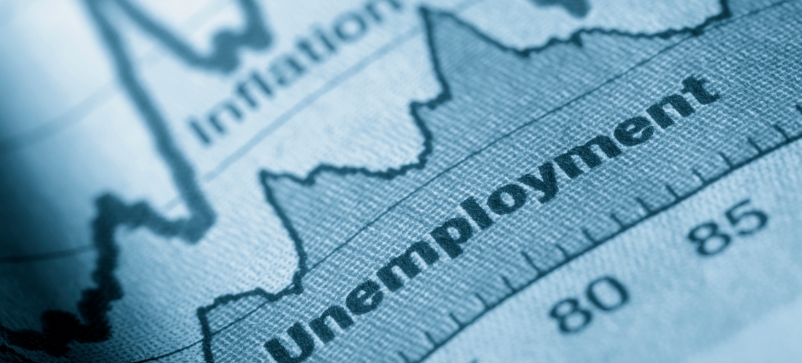
“This has been a place where Black people are disproportionately more likely to get jobs – better jobs, well-paying jobs,” Ajilore added. Economists also cite the country’s ever-changing trade policies as a possible factor, saying that businesses are putting off hiring new employees and other big-ticket items until they know how tariffs will affect their profits. The National Association for Business Economics recently conducted a poll in which it was discovered that one out of four enterprises want to postpone investments or employment for the next six months. The black unemployment rate is growing
According to Andre Perry, a senior fellow and director of the Center for Community Uplift at the Brookings Institution, the recent unemployment figures could be influenced by the Trump administration’s efforts to eliminate diversity, equity, and inclusion (DEI) programs in the private sector, the federal government, and schools. This would create a “antagonistic posture against the Black workforce” and harm Black hiring rates.
For example, there are still twelve times as many White persons in executive positions as there are Black Americans, despite DEI programs’ best efforts to reduce racial disparities. The diversity of executive suites and the careers of Black Americans may still be affected by the withdrawal. Black CEO ranks declined 3% from the previous year, twice the pace of White executive ranks, according to a former USA TODAY study. This decline occurred in 2023, when conservative groups attacked diversity, equity, and inclusion (DEI) initiatives at scores of firms and the Supreme Court invalidated affirmative action in college admissions.
“It’s so difficult to actually pinpoint,” Ajilore said, “but I think it plays a role” in this year’s jobless numbers. “There’s no smoking gun.”
The tight labor market in recent years has been beneficial for Black employees, but he warned that they may be more vulnerable to “last hired, first fired,” the practice of prioritizing the most recently hired workers when layoffs occur, now that the market is cooling. The black unemployment rate is growing
